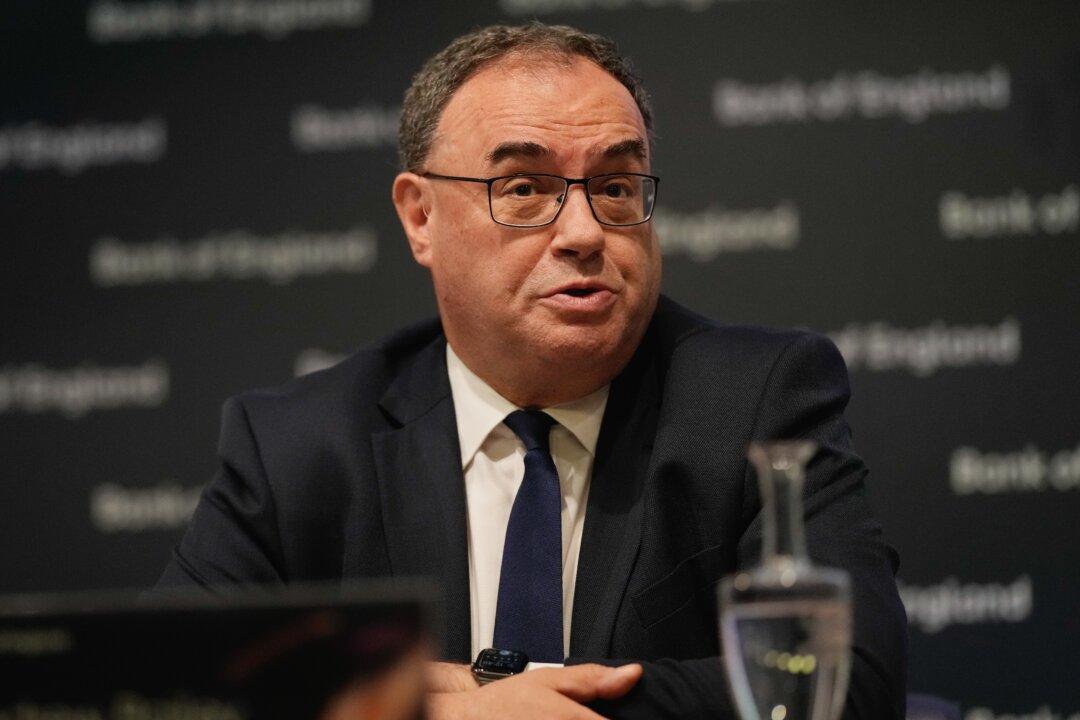The Bank of England (BoE) said it needs more evidence that inflation will fall further sustainably before it lowers interest rates, which it held at 5.25 percent on Thursday.
Only one member of the bank’s Monetary Policy Committee (MPC) voted to reduce the rate to 5 percent, while two members would rather see it go up to 5.5 percent.
Commenting on the vote, BoE Governor Andrew Bailey said that the current 4 percent level of inflation is expected to drop in the coming months.
“That is good news,” Mr. Bailey said.
The UK’s economy has seen a dramatic rise in inflation in the past two years. The COVID-19 pandemic and the increase in energy prices in the aftermath of the war in Ukraine were among the factors that pushed prices up.
The latest hike in the inflation rate was in December, when it increased from 3.9 to 4 percent. The current rate marks a significant drop from its peak of 11.1 percent in October 2022.
“The global factors that have pushed up prices have begun to fade,” said Mr. Bailey.
Before the MPC can lower interest rates, it has to see “more evidence that inflation will fall further and stay low,” he added.
“We’ve come a long way and while we can’t yet declare victory in the battle against inflation, we are heading in the right direction,” the BoE chief said.
The bank expects inflation to hit its 2 percent target in the second quarter 2024, before increasing again in subsequent quarters.
Restrictive Policy
A restrictive monetary policy stance by some MPC members could be attributed to the latest consumer price inflation figures.Although services price inflation and wage growth were lower than expected, the report noted the persistence in elevated key indicators of inflation.
The largest contribution to the headline rate of inflation came from alcohol and tobacco.
Chancellor Jeremy Hunt raised tobacco duty in his Autumn Statement, which pushed up the prices for tobacco. Prices in the sector rose by 12.8 percent in the year to December 2023, compared with a rise of 10.2 percent in November.
This in turn fed into a higher headline rate of inflation.
Economic Growth
UK GDP is expected to pick up by 0.1 percent in first three months of 2024. The forecast comes after the Office of National Statistics reported a fall of 0.2 percent in the three months to November last year, compared with the three months to August.Monthly GDP grew by 0.3 percent in November 2023, after a fall of 0.3 percent the previous month.
Commenting on the growth of global GDP, the MPC said it will continue to be subdued in the first quarter of 2024.
In its report, the committee found that while inflationary pressures were abating across the euro area and United States, factors that could disrupt the markets still remained.
“Material risks remain from developments in the Middle East and from disruption to shipping through the Red Sea,” the report said.
International transport of goods in the Red Sea has been distabilised by the ongoing unrest that followed three months of unprecedented attacks by the Iran-backed Houthi rebels on ships in the region.







